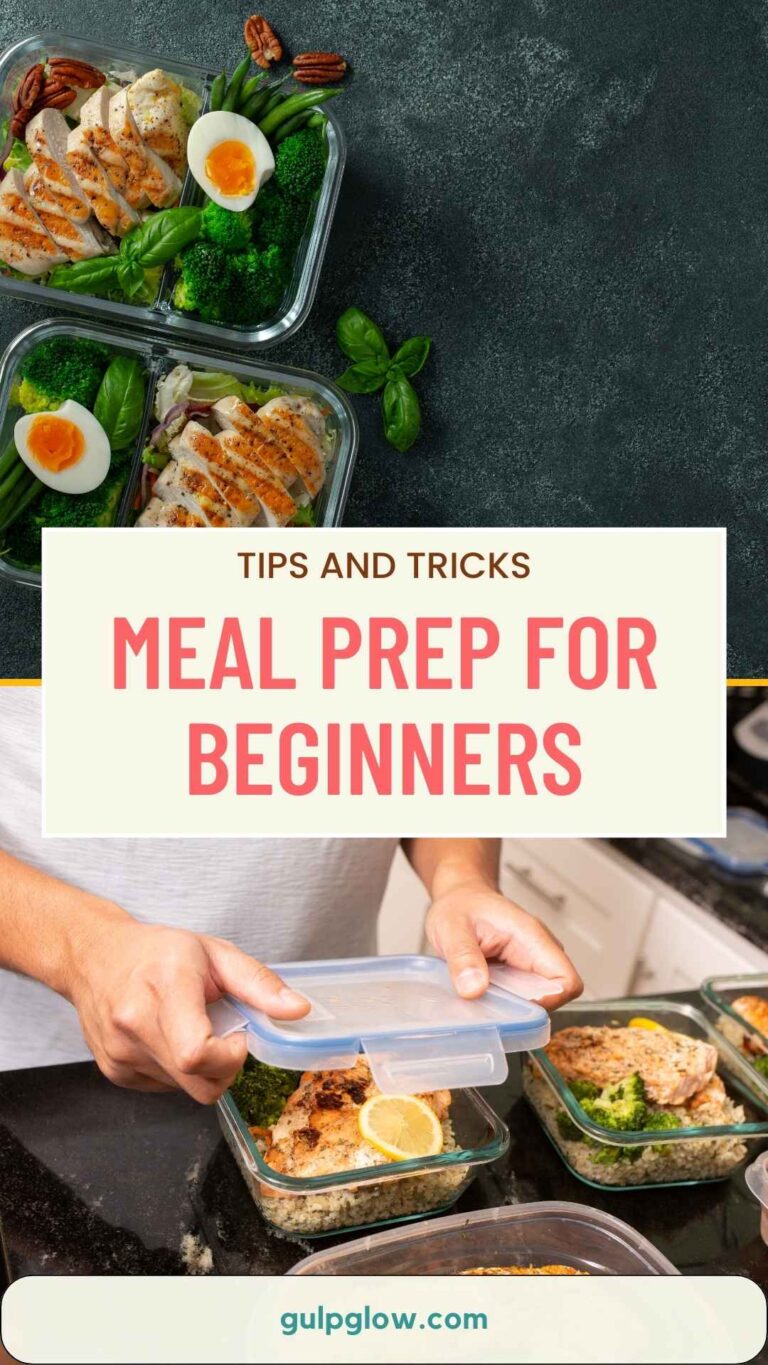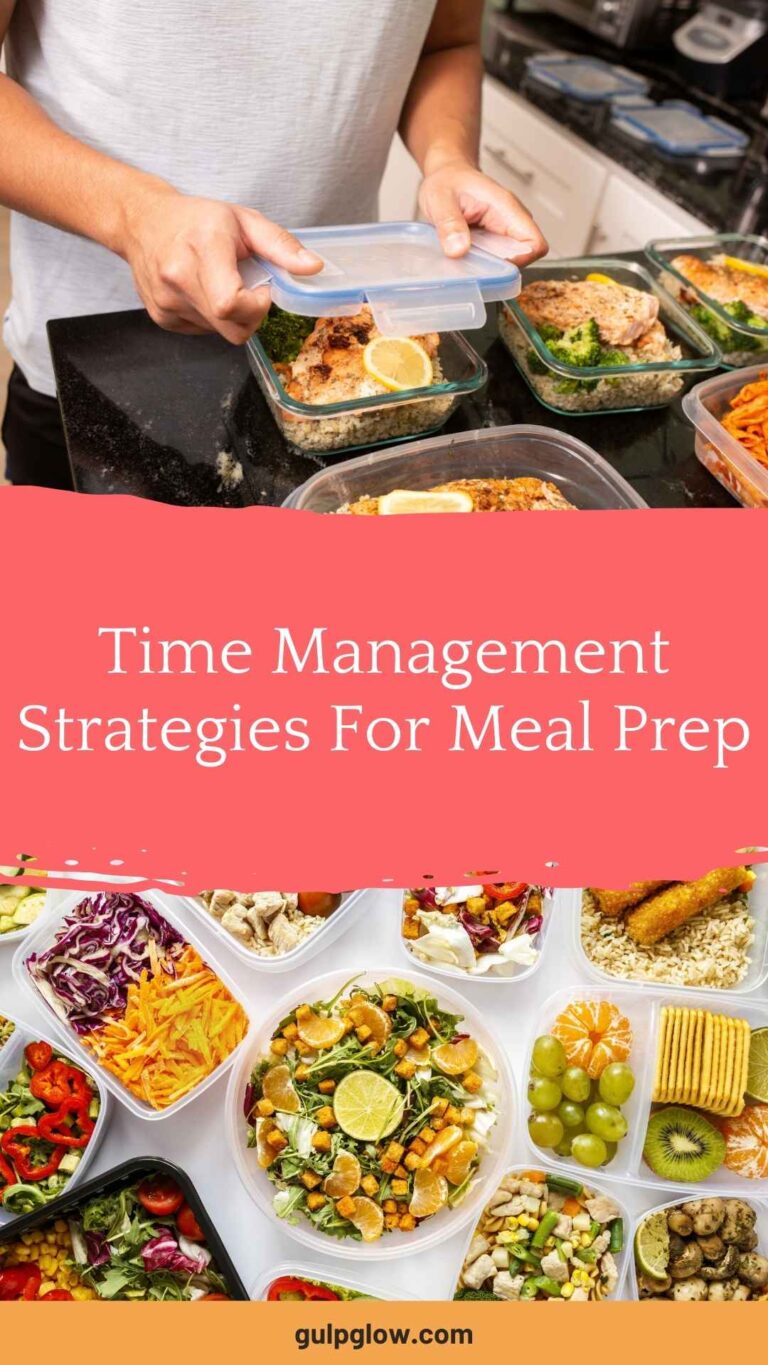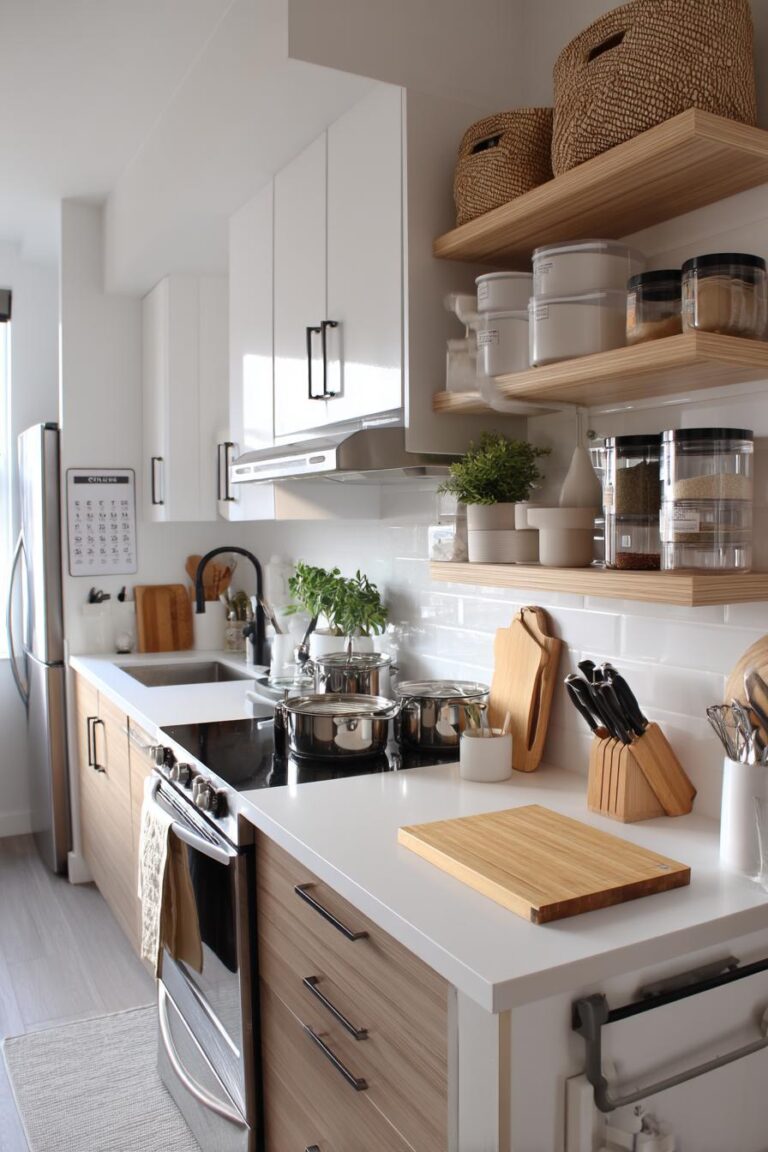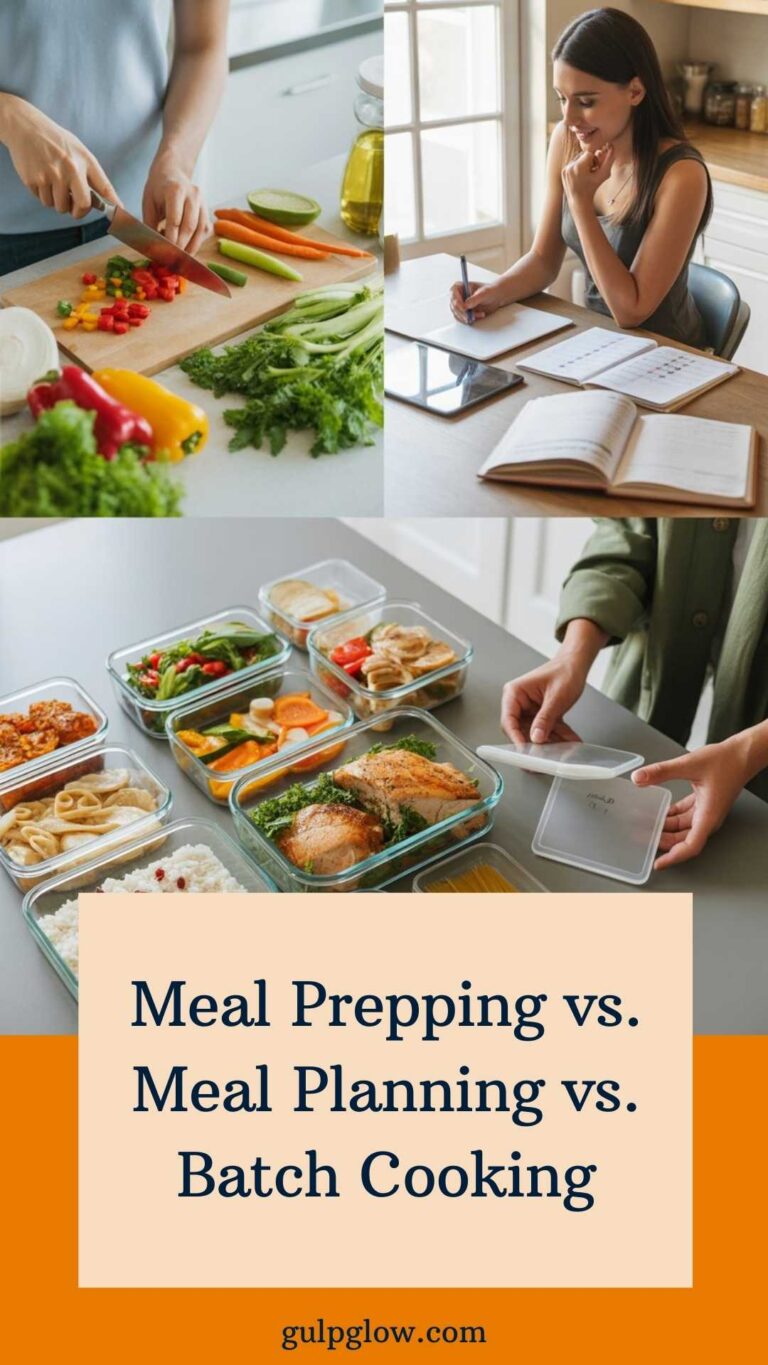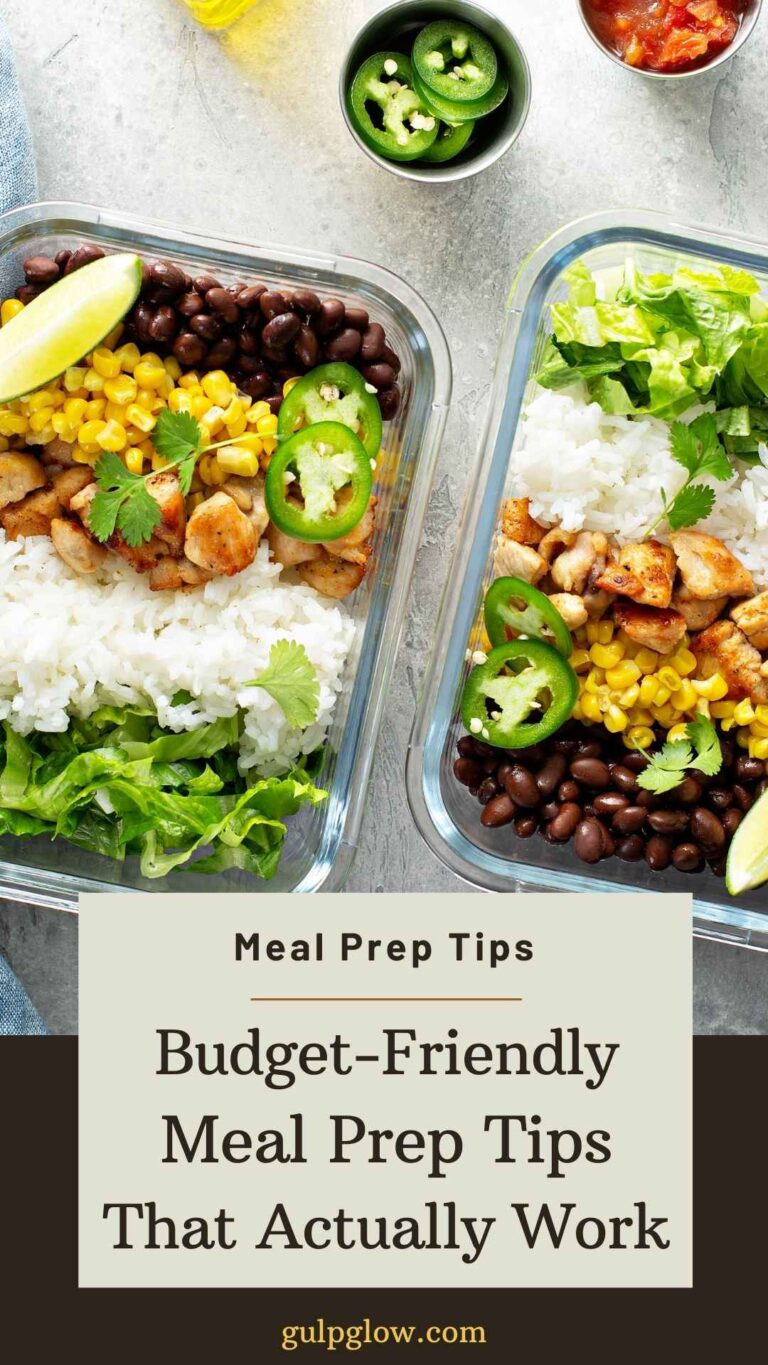7 Rookie Meal Prep Mistakes and How to Easily Avoid Them
Meal prepping can save you time and money, but it’s easy to slip up when you’re just getting started. Lots of folks dive in without a real plan or much idea of what actually works for their lifestyle.

Knowing the common mistakes can help you sidestep a lot of frustration and make meal prep fit into your week without much fuss. That way, you get the perks without feeling trapped by boring food or endless dishes.
1. Not prepping ingredients before starting cooking

If you skip prepping ingredients first, cooking gets chaotic fast. Suddenly you’re scrambling to chop or measure while something’s already sizzling on the stove. That’s when you forget stuff or burn dinner.
Getting everything ready ahead of time—measuring, chopping, even just grouping things together—makes cooking smoother. You can actually focus on the recipe instead of playing catch-up the whole time.
Chefs call this “mise en place,” which basically means putting everything in its spot. It really does make a difference. Try it once, and you’ll probably wonder why you waited so long.
2. Cooking every meal from scratch without planning

Cooking every single meal from scratch might sound noble, but if you don’t plan ahead, it just eats up your time and energy. Before you know it, you’re out of ingredients or just plain exhausted.
Mix things up with a little strategy. Maybe cook a big batch of rice or pasta at the start of the week, then use it in different meals. It’s a simple move that saves you from kitchen burnout.
Planning also keeps you from those last-minute grocery runs. If you know what you need, you won’t end up with too much or too little, which is a relief for your wallet and your sanity.
Honestly, not every meal has to be a masterpiece. Store-bought shortcuts or leftovers are totally fair game. Give yourself a break—you’ll stick with meal prep longer that way.
3. Making all your meals on a single day

Batch-cooking everything in one day? Sounds efficient, but it can be a recipe for burnout. When you cram all your meal prep into one marathon session, you’ll probably get tired, bored, or just plain sick of the kitchen.
Plus, prepping everything at once means some meals sit around longer and might not taste as fresh by Thursday or Friday. Nobody wants soggy veggies or dried-out chicken.
Try spreading meal prep over two or three days instead. That way, you keep things fresh and don’t burn out. It also lets you swap up your menu if you get bored—no shame in changing your mind.
4. Not labeling and freezing double batches

People often forget to label meals before freezing them. Later, you’re staring at a frosty mystery box, wondering if it’s chili or spaghetti sauce—and how old it actually is.
Cooking double batches is a lifesaver. Just make extra and freeze it. Next time you’re wiped out, you’ll thank yourself for having ready meals on hand.
Just jot down the date and what’s inside on each container. Permanent marker works fine. It’s a tiny step that keeps your freezer from turning into a graveyard of forgotten food.
And portion things out before freezing. Smaller containers mean you only thaw what you need, which is way less hassle.
5. Ignoring balanced meal components

It’s easy to overlook balance when you meal prep, but skipping protein, carbs, or veggies leaves your meals feeling incomplete. You need all three—protein for muscles, carbs for energy, veggies for vitamins and fiber.
If you just focus on one thing, you might end up tired or hungry again too soon. Not ideal.
Try to mix things up: grilled chicken, brown rice, and broccoli is classic, but use whatever works for you. Don’t forget snacks, either. Nuts, fruit, or yogurt between meals keep you from raiding the vending machine later.
6. Trying too many new recipes at once

Going wild with new recipes sounds fun until you’re knee-deep in instructions and dirty dishes. Suddenly, meal prep feels like a test you didn’t study for.
Stick to one or two new recipes at a time. Once you’ve got those down, rotate in another. It’s less stressful and you actually get better at making your favorites.
Plus, if you try too many new things and don’t like them, you end up wasting food. Keep it simple—your future self will appreciate it.
7. Under-salting food to avoid flavor

Lots of people think less salt means healthier food, but go too far and you end up with bland, sad meals. Salt’s not the enemy—it actually brings out flavors and makes meals satisfying.
Season as you cook, not just at the end. Add a little, taste, and adjust. That’s how you build flavor without overdoing it.
If you’re worried about salt, just start slow. You can always add more, but it’s tough to fix food that’s already too salty.
Honestly, a little proper seasoning is the difference between a meal you look forward to and one you dread.
Understanding the Impact of Meal Prep Errors
Messing up meal prep doesn’t just mess with your schedule—it can mess with your food’s quality and safety, too. If you know what goes wrong, you can tweak things and actually enjoy the process.
How Small Mistakes Affect Nutrition and Freshness
Store food wrong, and it loses nutrients a lot faster than you’d think.
Cheap plastic containers don’t seal well, so air sneaks in and food spoils quicker. That means fewer vitamins and a higher chance you’ll toss it out.
Prepping too much at once? That’s a shortcut to waste. Old leftovers aren’t safe, and reheating too often zaps nutrition.
If you skip balance or make meals too complicated, you might end up missing key nutrients or just not wanting to eat what you made.
Time-Saving Myths Debunked
Prepping a ton at once seems like a time-saver. But if your plan doesn’t fit your real life, you’ll probably waste time anyway.
Cooking dishes that need lots of reheating or juggling too many recipes can slow you down more than you’d expect.
And if you skip prepping snacks, you’ll probably grab something unhealthy just to get by. That kind of defeats the point, right?
Match your meal prep to your actual schedule. Keep things simple and ready so you get the benefits without the hassle.
Building Better Meal Prep Habits
If you want meal prep to work, focus on keeping food fresh and tasty all week. Find that sweet spot between variety and simplicity—you’ll avoid burnout and actually look forward to your meals.
Tips for Keeping Meals Tasty All Week
Keeping meals flavorful days after you cook them isn’t easy. Airtight containers help a ton—glass ones don’t hold onto smells or stains like plastic does.
Fresh herbs or a squeeze of lemon before eating can wake up tired flavors. Don’t go nuts with seasoning before storing, since spices can fade. Pick sturdy veggies like carrots, peppers, or broccoli—they hold up better.
If you’re not eating something soon, freeze it. Thaw it in the fridge overnight and reheat gently. That’s about as close to fresh as you’ll get without cooking every night.
Balancing Variety and Simplicity
When you’re meal prepping, you need enough variety so you don’t get bored, but not so many dishes that cooking turns into a headache. Pick two or three main proteins and a handful of sides—maybe three or four—you can mix and match. That way, meals stay interesting without feeling like a chore.
Try using similar cooking methods across your meals to save time. Say you’re roasting veggies and baking chicken—just toss them in the oven together at the same temp. Stick with a couple of staples, like rice or quinoa, that you can make in big batches. It’s just easier that way.
Honestly, skip the complicated recipes at first. If something has a dozen steps or weird techniques, it can get overwhelming. Start simple and, once you’re comfortable, branch out and experiment a little.

